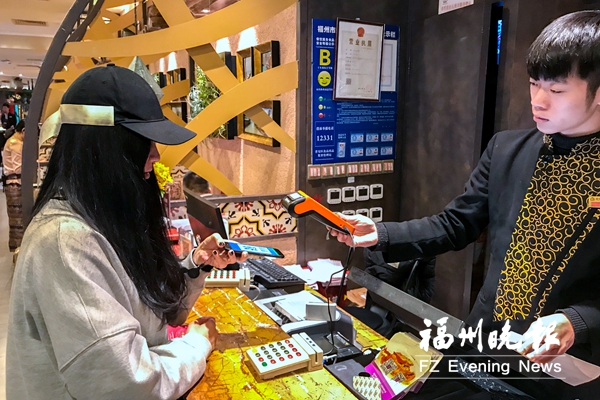

 |
|
A young purchaser uses her mobile phone to complete payment in a store in Fuzhou, southeast China's Fujian province during the Spring Festival holiday. [Photo/FZ Evening News] |
Few may notice how much cash they have in their wallet during this Spring Festival holiday as mobile payment has taken over people's lives in China, including in Fuzhou, capital of southeast China's Fujian province.
More and more people, especially younger ones, are embracing mobile payment as a lifestyle choice, with many often relying exclusively on their smartphones to make everyday purchases.
A distinct change that resulted from the rise of mobile payment services is in the way people send and receive gift money during the traditional festival.
The sending and receiving of hongbao among relatives and friends to promote or maintain their relationships, especially during Spring Festival, is a longstanding tradition. In many areas in China, elders traditionally give money in red envelopes to children during Spring Festival as a Lunar New Year gift, and many friends will also give red envelopes to one another to celebrate the festival.
The tradition entered the digital domain in 2014 when WeChat, the popular instant-messaging app operated by Tencent, introduced digital "red envelopes" allowing users to send each other monetary gifts via the app.
WeChat "red envelopes" and other digital money transfer services such as Alibaba's Alipay have been a big success, as they are a convenient way to give hongbao during the festival. Zhao Xian, an ad company partner in Fuzhou, gave hongbao worth 3000 yuan (about $473) on WeChat during the Spring Festival holiday this year.
"I have been getting used to giving hongbao on WeChat since starting two years ago," said Zhao, "It is more convenient and really relieved my stress compared to the old days when I had to give so much money in cash."